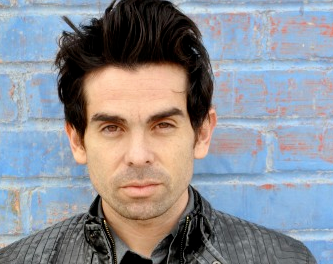




There was a point in church history where it seemed that the true faith had been swallowed up by the abuse and distorted teachings of the Roman Catholic Church. But such was not always the case. A few centuries after the resurrection of Christ, history records the Roman Catholic Church defending truth against heretics and false teachers. Athanasius bravely and boldly defended the truth that Christ was God. He defeated Arius with sound reasoning from the Scripture and the church continued on in the faith.
Not too long after that, St. Augustine rose up to defeat the heretic and false teacher Pelagius. Pelagius denied the doctrine of original sin, which teaches us that since Adam’s sin we are all born with a sin nature and prove it by sinning. Pelagius believed that we were born innocent and in the same state that Adam and Eve were created in. Thus, he believed that we could attain salvation by our perfect works. Of course, if that were true then we wouldn’t need a Savior. St. Augustine contended for the doctrine of original sin and man’s total depravity and showed just how sinful we are and why we need a Savior. Pelagius was condemned as a heretic and the church continued on in the faith.
But something changed over time. Some of the doctrines that the church once condemned as heresy, or false teaching, began to find their way into the minds, vocabulary and teaching of its leaders. Compromises were made. The church turned from the truth ever so slowly to the point that it soon became a false church. It came in the name of Christ but was completely anti-Christ, which is why many Christians have believed that the seat of the pope is the seat of the anti-Christ. Whether that is true or not is debatable. I mention this as historical information only.
As the Roman Catholic Church turned from the truth, here is what happened: Scripture was no longer the only rule of doctrine and practice for God’s people—what the pope said, what tradition said and what councils said were also binding on the people. Salvation was no longer by God’s grace alone—you also had to contribute some effort and works like keeping the commandments and being baptized. Justification was no longer a declaration from God that through faith in Christ you are righteous because you are clothed with His perfect works—rather justification, or being pronounced righteous, was something that you earned by actually being a good person. Thus, Christ alone was no longer the Savior--we end up being contributors to our salvation and therefore have reason to boast and receive glory. Thus, we cannot say, “To God alone be the glory for our salvation,” because we had something to do with it.
These five major departures from truth are the things that a few bold and faithful Christians sought to reform from the 1300’s to the 1600’s. Today these heresies still abound in many forms. These faithful men of God wanted the Roman Catholic Church to reform her ways. They loved the church. They loved the people. But they could not stand by and watch false teaching lead people away from God and to hell. So they protested—which is why Christians are called protestants. Eventually, their protests led to some of their deaths and banishment from the church. But it was God--working through their effort--that revitalized the church and brought many people to salvation.
Sadly, if you understand the conflict during these centuries, you will see that the Christian Church at large is on a slippery slope that leads right back to where the Roman Catholic Church has been for all these centuries. As a side note, one of the reasons we call ourselves a Reformed Church is because we want to see the Christian church called back to the same truths that the Reformers sought to re-instill in the Roman Catholic Church. Our love for the church should be expressed in calling them back to believe the truth so that God is glorified.
Now, if you had to summarize the teachings that the Reformers wanted to see take place, you would define them like this: Sola Scriptura, Sola Fide, Sola Gratia, Solus Christus and Soli Deo Gloria. They are five Latin phrases that simply mean: Scripture Alone, Faith Alone, Grace Alone, Christ Alone, God’s Glory Alone. What’s interesting about these five doctrines is that most churches acknowledge these things to be true. But when you examine their practices and theology, you find that it’s only lip service that is given to these doctrines. There is a massive disconnect between what they say they believe and what they actually teach and practice.
Over the next five posts, I will try to explain each one in a little more detail. I also hope to give personal illustrations and examples from my life of what it looks like to deny the “Five Solas.” About six years ago, I would have agreed with these five statements, but when I actually examined what I was teaching and what I was living, I saw a contradiction between my creeds and my deeds--my beliefs and my practices. And one thing is for sure: what you practice is really what you believe. I discovered that I really didn’t believe in the “Five Solas.” That alarmed me and sent me on a radical pursuit to get back to the heart of what Christians truly believe. I hope to share more of that with you as God allows us all to mature in the faith together.
Not too long after that, St. Augustine rose up to defeat the heretic and false teacher Pelagius. Pelagius denied the doctrine of original sin, which teaches us that since Adam’s sin we are all born with a sin nature and prove it by sinning. Pelagius believed that we were born innocent and in the same state that Adam and Eve were created in. Thus, he believed that we could attain salvation by our perfect works. Of course, if that were true then we wouldn’t need a Savior. St. Augustine contended for the doctrine of original sin and man’s total depravity and showed just how sinful we are and why we need a Savior. Pelagius was condemned as a heretic and the church continued on in the faith.
But something changed over time. Some of the doctrines that the church once condemned as heresy, or false teaching, began to find their way into the minds, vocabulary and teaching of its leaders. Compromises were made. The church turned from the truth ever so slowly to the point that it soon became a false church. It came in the name of Christ but was completely anti-Christ, which is why many Christians have believed that the seat of the pope is the seat of the anti-Christ. Whether that is true or not is debatable. I mention this as historical information only.
As the Roman Catholic Church turned from the truth, here is what happened: Scripture was no longer the only rule of doctrine and practice for God’s people—what the pope said, what tradition said and what councils said were also binding on the people. Salvation was no longer by God’s grace alone—you also had to contribute some effort and works like keeping the commandments and being baptized. Justification was no longer a declaration from God that through faith in Christ you are righteous because you are clothed with His perfect works—rather justification, or being pronounced righteous, was something that you earned by actually being a good person. Thus, Christ alone was no longer the Savior--we end up being contributors to our salvation and therefore have reason to boast and receive glory. Thus, we cannot say, “To God alone be the glory for our salvation,” because we had something to do with it.
These five major departures from truth are the things that a few bold and faithful Christians sought to reform from the 1300’s to the 1600’s. Today these heresies still abound in many forms. These faithful men of God wanted the Roman Catholic Church to reform her ways. They loved the church. They loved the people. But they could not stand by and watch false teaching lead people away from God and to hell. So they protested—which is why Christians are called protestants. Eventually, their protests led to some of their deaths and banishment from the church. But it was God--working through their effort--that revitalized the church and brought many people to salvation.
Sadly, if you understand the conflict during these centuries, you will see that the Christian Church at large is on a slippery slope that leads right back to where the Roman Catholic Church has been for all these centuries. As a side note, one of the reasons we call ourselves a Reformed Church is because we want to see the Christian church called back to the same truths that the Reformers sought to re-instill in the Roman Catholic Church. Our love for the church should be expressed in calling them back to believe the truth so that God is glorified.
Now, if you had to summarize the teachings that the Reformers wanted to see take place, you would define them like this: Sola Scriptura, Sola Fide, Sola Gratia, Solus Christus and Soli Deo Gloria. They are five Latin phrases that simply mean: Scripture Alone, Faith Alone, Grace Alone, Christ Alone, God’s Glory Alone. What’s interesting about these five doctrines is that most churches acknowledge these things to be true. But when you examine their practices and theology, you find that it’s only lip service that is given to these doctrines. There is a massive disconnect between what they say they believe and what they actually teach and practice.
Over the next five posts, I will try to explain each one in a little more detail. I also hope to give personal illustrations and examples from my life of what it looks like to deny the “Five Solas.” About six years ago, I would have agreed with these five statements, but when I actually examined what I was teaching and what I was living, I saw a contradiction between my creeds and my deeds--my beliefs and my practices. And one thing is for sure: what you practice is really what you believe. I discovered that I really didn’t believe in the “Five Solas.” That alarmed me and sent me on a radical pursuit to get back to the heart of what Christians truly believe. I hope to share more of that with you as God allows us all to mature in the faith together.
















No comments:
Post a Comment